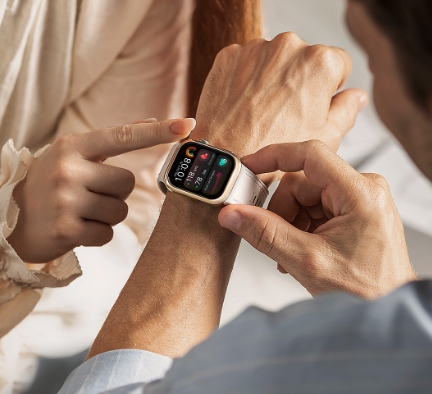
Monitoring blood pressure regularly is essential for maintaining overall health, particularly for seniors. As individuals age, the risk of developing hypertension or hypotension increases, making it crucial to track fluctuations in blood pressure. Blood pressure can significantly affect many bodily systems, including the heart, kidneys, and brain. For seniors, even small changes in blood pressure can lead to serious health complications such as heart disease, stroke, and kidney failure. Therefore, consistent monitoring becomes not just a recommendation but a critical aspect of managing age-related health concerns. In this article, we will explore how blood pressure fluctuations impact health and how they can be managed through lifestyle changes, medical interventions, and technology.
How Blood Pressure Fluctuations Affect Senior Health
Blood pressure fluctuations, whether they are high or low, can have significant effects on the health of seniors. As the body ages, blood vessels become stiffer, making it harder for the heart to pump blood effectively. This can cause pressure to build up in the arteries, leading to high blood pressure or hypertension. On the other hand, a sudden drop in blood pressure, or hypotension, can cause dizziness, fainting, and falls, which can result in serious injuries.
The Risks of High Blood Pressure for Seniors
High blood pressure is one of the leading causes of heart disease and stroke in seniors. When blood pressure remains elevated over time, it puts strain on the heart and blood vessels, increasing the likelihood of heart attacks, strokes, and kidney failure. Seniors with uncontrolled high blood pressure may experience severe complications, such as heart failure or impaired cognitive function. This condition is often called the "silent killer" because it frequently does not present noticeable symptoms until it has caused significant damage to the body.
The Impact of Low Blood Pressure on Seniors
Low blood pressure, or hypotension, is equally concerning for seniors. It can cause dizziness, fainting, and falls, all of which pose a serious risk of injury. Moreover, low blood pressure can lead to inadequate blood flow to vital organs, including the brain and kidneys, potentially causing cognitive decline and kidney damage. While high blood pressure is more common in older adults, low blood pressure is also a concern that requires attention and proper management. Monitoring blood pressure can help identify such fluctuations and prompt early intervention before serious problems arise.
The Benefits of Regular Blood Pressure Monitoring
Regular blood pressure monitoring provides numerous benefits for seniors, ranging from early detection of potential health issues to better medication management and lifestyle adjustments. By tracking blood pressure over time, seniors can gain insight into their cardiovascular health and make informed decisions regarding treatment and lifestyle choices.
Early Detection of Health Issues
The most significant benefit of regularly monitoring blood pressure is early detection. Even slight fluctuations or trends in blood pressure can indicate the onset of more serious conditions, such as hypertension or hypotension. Detecting these issues early on allows seniors to consult with healthcare providers promptly, reducing the risk of complications and improving treatment outcomes. For instance, if a senior’s blood pressure rises beyond healthy limits, their doctor can recommend lifestyle changes or medication to prevent more severe issues.
Managing Medications and Lifestyle Adjustments
For seniors who are already managing high or low blood pressure, regular monitoring is essential for adjusting medications and lifestyle habits. Many seniors take medications to control blood pressure, but dosages may need to be adjusted based on real-time data. Monitoring blood pressure helps ensure that medications are effective and that seniors are not experiencing adverse effects. Moreover, seniors can use their blood pressure readings to modify their diet, exercise routines, and stress levels to improve their overall health and well-being.

How Technology Can Aid in Monitoring Blood Pressure for Seniors
In today’s digital age, technology plays a crucial role in monitoring health. Wearable devices, blood pressure monitors, and health apps make it easier than ever for seniors to keep track of their blood pressure levels. These technologies offer convenience, accuracy, and continuous monitoring, all of which are essential for maintaining optimal health.
Using Wearable Devices for Continuous Monitoring
Wearable devices, such as smartwatches and fitness trackers, are becoming increasingly popular for health monitoring, especially for seniors. One such device is the Huawei Watch D2, which features advanced health monitoring capabilities, including blood pressure measurement. This device provides continuous monitoring, allowing users to track their blood pressure throughout the day and night. The Huawei Watch D2’s dynamic blood pressure measurement feature provides not only real-time data but also historical trends, helping seniors stay informed about their health over time. Additionally, it can measure other health metrics like heart rate, SpO2, and even conduct ECG analysis, offering a comprehensive approach to senior health management.
The Role of Blood Pressure Monitors in Daily Health Checks
While wearable devices offer continuous monitoring, traditional blood pressure monitors still play an essential role in daily health checks for seniors. These devices, often recommended by healthcare professionals, provide more precise readings at specific times of the day. Regular use of blood pressure monitors at home helps seniors stay on top of their health and provides valuable data for doctors when making adjustments to treatment plans. Blood pressure monitors that are easy to use and accurate can empower seniors to take charge of their health without frequent visits to the doctor.
Tips for Seniors to Monitor Blood Pressure Effectively
Monitoring blood pressure effectively requires more than just regular checks—it also involves using the correct techniques and knowing when to seek medical advice. Here are some essential tips for seniors to monitor their blood pressure effectively.
Best Practices for Accurate Readings
To ensure accurate blood pressure readings, seniors should follow best practices when measuring their blood pressure. It’s important to rest for a few minutes before taking a reading, as physical activity can temporarily elevate blood pressure. Seniors should also avoid caffeine, nicotine, and stressful situations before measurement. Additionally, using the same arm each time and keeping the cuff at heart level can help maintain consistency in readings.
Knowing When to Seek Medical Advice
If blood pressure readings remain consistently high or low, seniors should seek medical advice immediately. Persistent high blood pressure may require changes to medications or lifestyle, while low blood pressure may need to be addressed with hydration, dietary changes, or other interventions. Seniors should also consult a doctor if they experience symptoms like dizziness, chest pain, or fainting, as these could signal a more serious underlying condition.
Pay Attention to Food
Diet plays a crucial role in managing blood pressure, especially for seniors. A balanced diet rich in fruits, vegetables, whole grains, and lean proteins can help maintain healthy blood pressure levels, while limiting sodium, unhealthy fats, and processed sugars is essential. You might wonder: does decaf coffee raise blood pressure? While decaf contains less caffeine, it still has a small amount, which could have a minor effect on blood pressure in some individuals. However, its impact is much less than regular coffee. Seniors should observe how their body responds to decaf and adjust their intake accordingly.

Conclusion
In conclusion, monitoring blood pressure is a vital aspect of senior health that can significantly improve quality of life and reduce the risk of serious health issues. By understanding how blood pressure fluctuations affect health and leveraging modern technologies like wearable devices, seniors can better manage their blood pressure and make informed decisions about their well-being. Regular blood pressure monitoring, coupled with healthy lifestyle choices, is essential for aging gracefully and avoiding the complications that can arise from hypertension or hypotension.